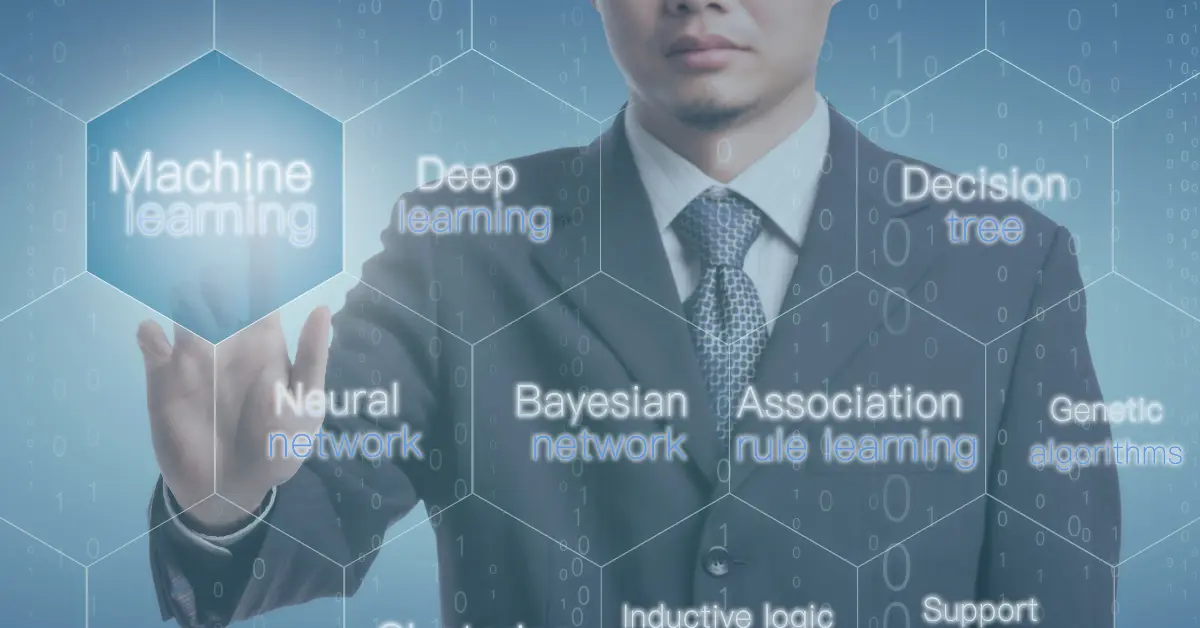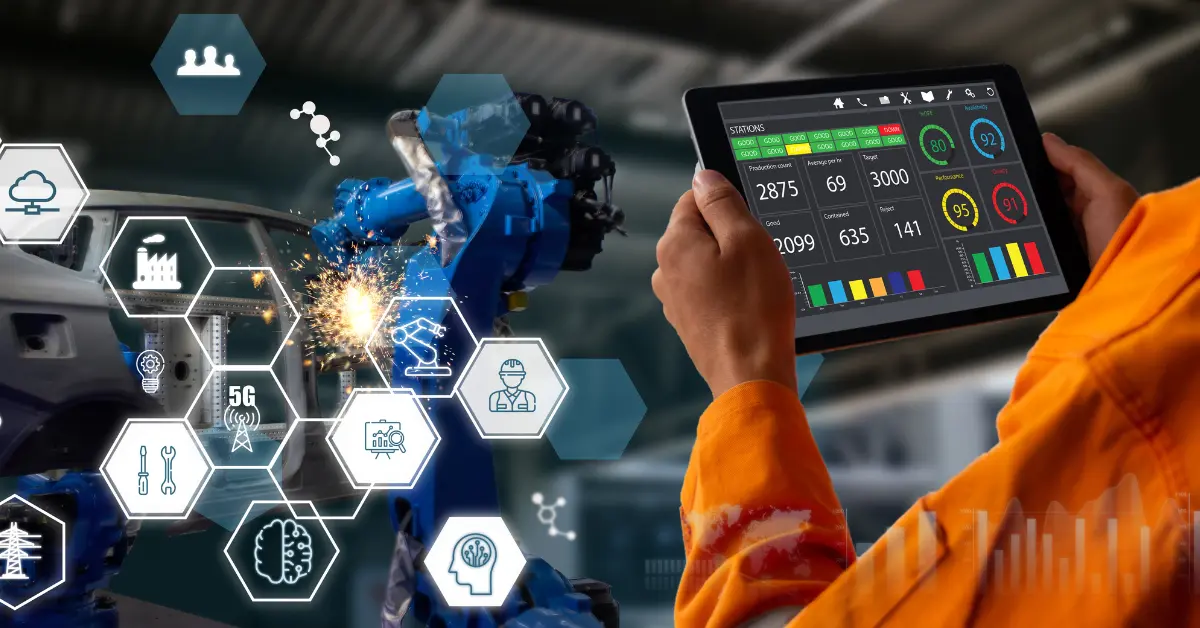Big data refers to extensive structured or unstructured data that cannot be analyzed or processed using traditional database management tools. These data sets are so massive and complex that they require sophisticated tools and technologies to extract meaningful insights. Big data has become crucial in many industries, including marketing, healthcare, finance, and government. With the advancement of technology, the volume, velocity, and variety of data available for analysis have grown exponentially.
Artificial Intelligence (AI) is a technology that leverages big data to provide effective and efficient solutions. This blog post will explore the connection between big data and AI and how utilizing big data can enhance artificial intelligence.
How Big Data Drives Artificial Intelligence?
Artificial Intelligence is a branch of computer science that focuses on creating intelligent machines that can think and act like humans. Big data significantly advances AI capabilities by providing vast amounts of training data for algorithms. Here are some of the ways big data drives artificial intelligence:
1) Training Data for Machine Learning Algorithms:
With the help of big data, AI algorithms can analyze vast amounts of data and learn patterns and insights. The more data an AI system has, the more accurate its predictions and decisions will be. For instance, Google’s AI-powered virtual assistant, Google Assistant, is trained on enormous amounts of data, including search queries, voice commands, and user behaviour. This training data allows the assistant to accurately understand and respond to user requests.

2) Improving AI Decision-Making:
In the past, AI systems were programmed with specific rules to follow, limiting their capabilities. However, with big data, AI algorithms can process, analyze, and learn from large datasets, enabling them to make complex decisions based on patterns and trends. This ability has significantly enhanced AI in facial recognition,
natural language processing, and real-time translation.
3) Supporting Predictive Analytics:
Big data has enabled AI systems to optimize predictive analytics using predictive models to forecast future events and trends. The massive amounts of data available today allow AI algorithms to identify hidden patterns and trends, making predictions more precise and reliable. This has been particularly beneficial in industries such as retail, where AI-powered predictive analytics can forecast customer demand and optimize inventory management.
4) Facilitating Automation:
Automation is a crucial aspect of AI that has greatly benefited from big data. With the help of big data analytics, AI algorithms can automate previously time-consuming and error-prone tasks for humans. For example, in healthcare, AI-powered robots can analyze vast amounts of medical data to assist doctors with diagnoses and treatment plans.
5) Enhancing Personalization:
Big data has allowed AI to personalize user experiences in a previously impossible way. By leveraging big data analytics, AI-powered systems can analyze user behaviour and preferences, enabling them to deliver customized recommendations and suggestions. Personalized AI experiences can be seen in various applications, such as online shopping, music streaming, and social media algorithms.
Incorporating Big Data in Various AI Techniques
AI leverages various techniques and algorithms to perform tasks and make decisions. Here, we will discuss how big data has enhanced some of the critical AI techniques:
1) Natural Language Processing (NLP):
NLP is an AI technique that enables machines to understand and respond to natural language. With big data, NLP algorithms can process massive amounts of text data, such as online reviews, social media posts, and customer service interactions. This allows NLP algorithms to improve their understanding accuracy and generate human-like language responses.
2) Computer Vision:
Computer vision is an AI technique that enables machines to interpret, analyze, and understand visual data. With big data, computer vision algorithms can process vast amounts of data from various sources, including images, videos, and satellite imagery. This ability has enabled AI to perform facial recognition, object detection, and image captioning tasks.
3) Deep Learning:
Deep learning is an AI technique that enables machines to learn from data independently without explicit human programming. With big data, deep learning algorithms can analyze large amounts of data and identify patterns and structures. This allows AI systems to make complex decisions and perform tasks with a higher degree of accuracy.

4) Sentiment Analysis:
Sentiment analysis is an AI technique that enables machines to understand and interpret people’s emotions and attitudes through analyzing text data. Big data has significantly enhanced sentiment analysis, allowing AI-powered systems to analyze massive social media posts, customer reviews, and support conversations. This has enabled businesses to gauge public opinion and take appropriate actions in real time.
Benefits of Utilizing Big Data in AI
Integrating big data in AI processes has many benefits, including:
1) Better Decision-Making:
By analyzing vast amounts of data, AI-powered systems can make better and more informed decisions. This can be instrumental in guiding businesses and organizations towards success.
2) Cost Savings:
By automating tasks and processes, AI systems can save businesses time and money. AI can analyze data much faster and with better accuracy than humans, reducing the need for manual labour.
3) Enhanced Customer Experience:
With big data, AI can offer a personalized experience to customers, leading to increased customer satisfaction and loyalty. This can give businesses a competitive edge in the market.
4) Improved Efficiency and Productivity:
With the help of big data, AI systems can automate tedious and time-consuming tasks, allowing employees to focus on more valuable tasks. This can increase overall efficiency and productivity in an organization.
Conclusion
From automating tedious tasks to predicting future trends, big data has significantly enhanced the capabilities of artificial intelligence. With the continued growth of data, the capabilities of AI will continue to expand, leading to more advanced and efficient systems. However, businesses and organizations must ensure they use big data responsibly and address ethical concerns to realize the full potential of artificial intelligence. Utilizing big data in AI will undoubtedly help businesses and organizations achieve their goals and significantly impact the world.
Frequently Asked Questions (FAQs)
Q: Can AI function without big data?
AI can function without big data, but its capabilities will be severely limited. Big data provides the necessary training data for AI systems to learn and improve their decision-making abilities.
Q: How does big data affect the accuracy of AI systems?
The more data an AI system has to learn from, the more accurate its predictions and decisions will be. Therefore, big data directly impacts the accuracy of AI systems.
Q: Is there a limit to the amount of data AI can process?
With current technology, AI systems can process vast amounts of data. However, as the volume of data continues to grow, AI systems may experience processing speed and performance limitations.
Q: Are there any ethical concerns with using big data in AI?
Yes, as with any technology, there are ethical concerns related to using big data in AI. These include privacy concerns, potential bias in data, and the impact on job displacement due to automation.
Q: What industries can benefit from utilizing big data in AI?
Many industries can benefit from utilizing big data in AI, including healthcare, finance, retail, marketing, and government. Any industry that produces and collects large amounts of data can leverage AI to make better decisions and improve processes.




